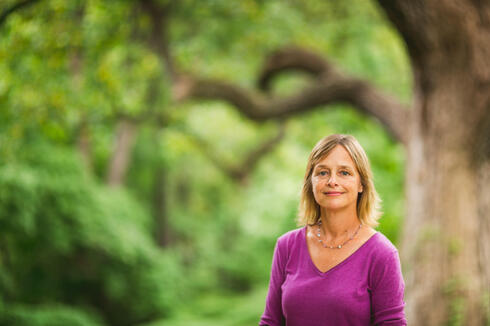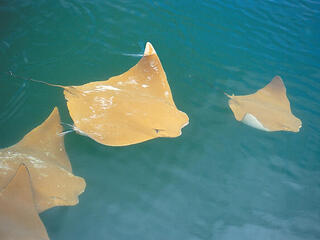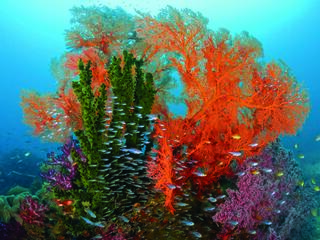Lisa’s Travel Tips
If you are a traveler, I urge you to think about where you’re going, and ask some questions:
Does some of your travel money go back to a community, say to build a school? Or better yet, does the lodge where you are staying employ and train a maximum number of people from local communities? Is the lodge co-owned by the community and a private company?
Is the country you are visiting investing in conservation? Think about this before you go.
As you travel around the world, become a more informed consumer. Not only can you contribute to conservation and development organizations, but you can play a far more direct role in transforming the tourism industry to support community-based conservation. Just think of what that would mean for KAZA, its elephants, and its communities.
We are fortunate to have funding from WWF donors such as Neville and Pamela Isdell, who grew up in Zambia and are deeply committed to conserving that country’s unique landscapes and wildlife in a way that empowers and benefits local people. A portion of their funding is going to field-based activities in KAZA, and part of it is supporting changes in Zambia’s national policy framework, including giving communities the right to manage and benefit from their own wildlife. Getting that legal framework right is at the core of community-based conservation, and fundamental to the achievement of the KAZA vision.
Our support of KAZA has gotten off to a solid start with a concept known as “twinning.“ Thanks in part to the facilitation efforts of our long-time Namibian partner, Integrated Rural Development and Nature Conservation, people who live on opposite sides of national boundaries are coming together to discover common experiences, share conservation successes, and discuss how to manage shared natural resources, prevent threats like fire, and stop transboundary poaching.
For example, Zambia is strong in conservation agriculture, so its farmers can teach community members in Namibia what they’ve learned. And Namibia is strong in forging partnerships with the tourism sector, so they are sharing that model with Zambia. Twinning gives us the opportunity to make the most of the experience and expertise of each country, in order to help all KAZA countries move forward rapidly.
In all the conservation projects I’ve been involved in, I’ve never lost sight of the fact that people’s livelihoods and cultural heritage are still intricately tied to the natural world. Yet too often they don’t own the resources they depend on. So the question becomes, how do you transform rural economies and play a role in moving people out of poverty? How do you give affected communities a voice and the right to use that voice?
What does it mean to a community when suddenly they have the right to manage their wildlife or a forest or a coral atoll for fishing? Managing your own resources—and having the knowledge, power and right to manage them—is critical. But there must also be an incentive for communities to sustain their resources in a rapidly changing world—which is where tourism and other markets-based opportunities come in.
Simply put, having governance and management responsibilities for your own assets can be extremely empowering. It’s a really cool thing. It is the power of place.
My roots in community-based conservation are planted at the village level. When you live in a village, you see the day-to-day challenges people confront—the poverty, the poor health, the disconnect from the wider world—but you also see the hope and the fundamental decency.
I think back to the farmers I worked with 17 years ago—they had so little, yet every time I came to visit they welcomed and fed me. We spent endless hours talking and laughing. Sure, it didn’t come easily, but my heart is still there. So although I am not in Africa right now, the most important thing I can do is to be a spokeswoman for communities and conservation there.
Lisa Steel spent 17 years living and working in Africa, starting as a Peace Corps Volunteer in Zaire and later working in Gabon, Zambia and Central African Republic. Finally, she came full circle to her roots in the Democratic Republic of the Congo (the former Zaire). Her work ranged from studying the dynamics of the bushmeat trade, to supporting community-based conservation in Zambia, to managing complex forest landscapes in some of the more remote parts of central Africa. Today, Lisa is applying her expertise to sustaining and magnifying community-based conservation efforts in places like Namibia, Tanzania and KAZA.



